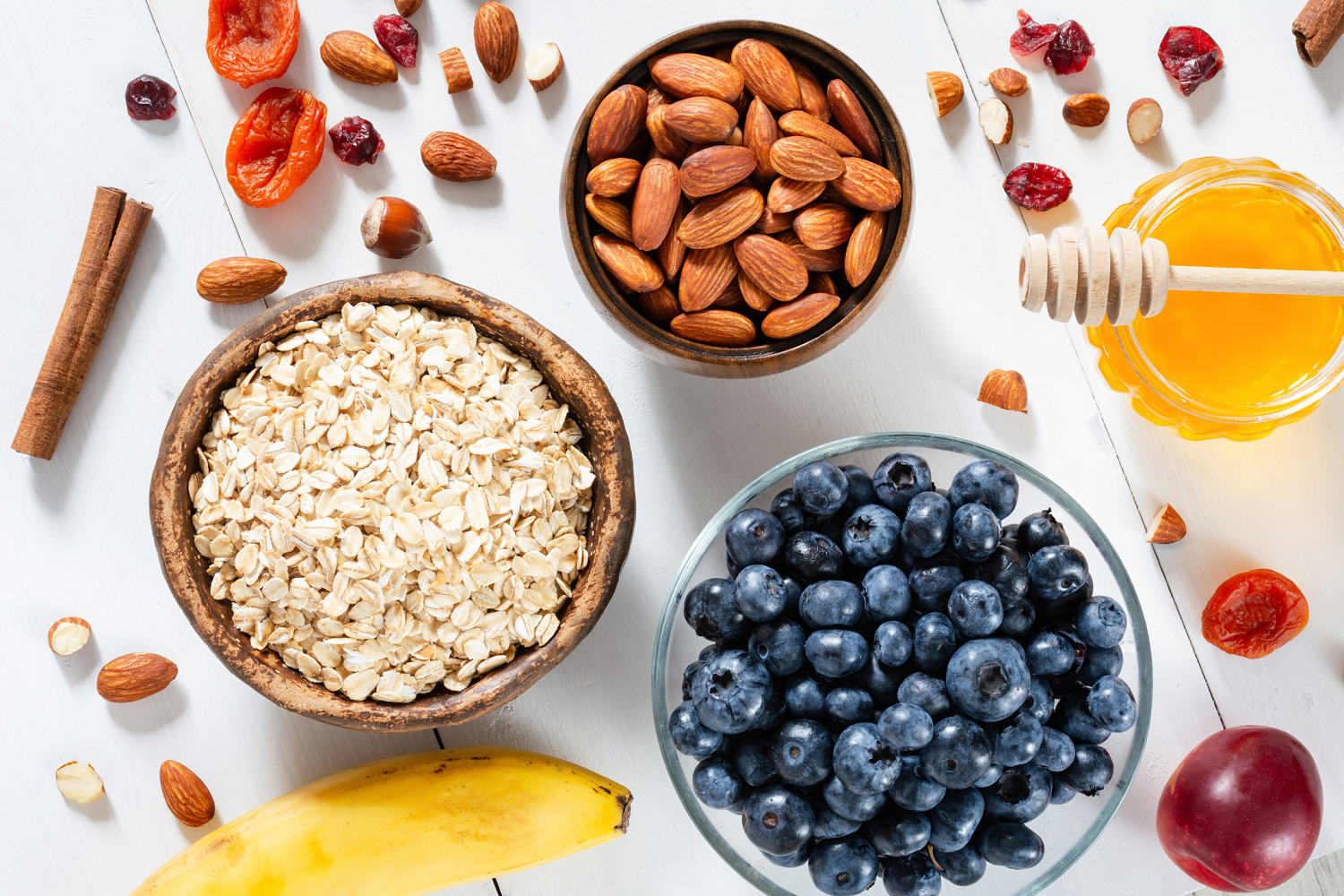
As a dietitian at a major medical institution, I often talk with patients about the three macronutrients — protein, fat and carbs, so named because we need large amounts in our diet. But I much less frequently am asked about the foods with micronutrients, or the vitamins and minerals we need to consume in smaller quantities. A recent analysis by researchers at Harvard and published in has found that more than half of the world's population is not getting enough micronutrients, especially iodine, vitamin E, calcium, iron, riboflavin, folate, vitamin C and vitamin B6.
The study also found deficiencies varied by gender, with women more likely to have inadequate intake of B12 and iron, and men more likely to not get enough magnesium and zinc. Here's what to know about micronutrients and food. Micronutrients are vitamins and minerals the body requires in only small amounts.
There are two major types: water-soluble and fat-soluble. Water-soluble nutrients, such as B vitamins and vitamin C, are dissolved in water. Our body utilizes what it needs and then excretes what is not used through urine.
Fat-soluble vitamins, such as vitamins A, E, D, and K, are dissolved in fat and therefore may be stored in the body. Micronutrients also include minerals. Calcium, iodine, and zinc are examples of micronutrient minerals.
Although all micronutrients are essential to health, some are more critical than others. Calcium, for example, is necessary for bone, teeth, heart health, and regular blood clotting. Iron is another vital micronutrient required for the energy and transportation of hemoglobin.
Vitamin D is associated with healthy immunity and is crucial to the body’s absorption of calcium. Adequate iodine is necessary for proper thyroid function, and zinc is essential for wound healing, growth, development and DNA synthesis. Finally, vitamin A is needed for good eye health and supports the immune system, while adequate folate is associated with reducing the risk of congenital disabilities.
Micronutrients are an integral component of health and longevity. Vitamins and minerals are vital factors in normal bodily function and reduce the risk of chronic conditions, such as , and . In general, can lead to serious health problems, blindness, muscle weakness, join pain, dry skin, brittle hair and nails, constipation, poor growth and premature death.
More specific signs of a micronutrient deficiency will depend on the micronutrient you're not getting enough of. Iron deficiency can lead anemia, signs of which include pale skin, fatigue, weakness, shortness of breath, headache, brittle nails or hair loss and more, . Signs of vitamin deficiency include bone pain, fatigue, muscle weakness, aches or cramps, and mood changes, like depression, .
, deficiency of B vitamins include fatigue, weakness, decreased appetite, weight loss, vision problems and mood changes. In most cases, low potassium will not cause any symptoms, . But when it does, these include constipation, heart palpitations, fatigue, muscle weakness, numbness, low blood pressure, muscle weakness and cramps, and excessive urination and thirst.
, calcium deficiency signs include fatigue, poor oral health, muscle pain and spasms, irregular heart rhythm, numbness or tingling in the figures and cognitive issues. Signs of magnesium deficiency, , include fatigue, reduced appetite, muscle spasms, nausea, stiffness and weakness. Many foods provide multiple micronutrients.
Consuming these foods in meals and snacks may reduce the risk of deficiencies. Examples include: When choosing the best dietary pattern to meet your physical and mental health goals, know that micronutrients are as critical as macronutrients. Eating enough vitamins and minerals can lead to better energy and mood, and reduce risk of chronic conditions.
Simply put: A diet rich in micronutrients may help you live longer and better. The best way to eat more micronutrients is with a balanced diet full of plants, lean protein sources, complex carbohydrates and healthy fats. If this seems overwhelming, focusing on color is easy way to achieve more balance in your diet.
Aim for at least seven colors daily to ensure a variety of vitamins and minerals. In addition to color, look for variety in proteins, as well. Lentils, quinoa and lean animal proteins may all contain abundant nutrient density.
Kristin Kirkpatrick, MS, RDN, former lead dietitian at Cleveland Clinic and founder and president of KAK Consulting, LLC., is an award-winning dietitian, best-selling author and nationally recognized speaker and writer. Follow Kristin while she works to help people live longer and better , with the world’s greatest need in mind, good health.
.














